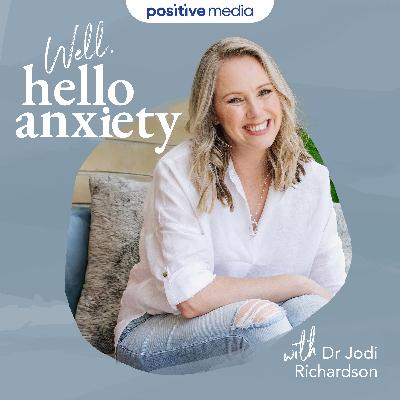Step into the world of resilience and transformation with Lucy Holmes, the vibrant host of 89.9 TheLight's Breakfast in Melbourne. Join her as she collaborates with the insightful Dr. Jodi Richardson to unveil a dynamic new podcast partnership brought to you by Positive Media. In our debut episode, we'll delve into the gripping terrain of personal triumph in the face of adversity. Discover the remarkable journey of rising from the rubble when life takes a drastic turn. Explore how the darkest moments can become the forge where your inner strength is honed, reshaping the core of your very being. But that's not all; we'll unravel the profound potency of vulnerability, showing you how it can be a catalyst for personal growth. Lucy and Dr. Jodi will illuminate the path to unlocking your true potential by embracing your authentic self and sharing your most intimate experiences with those nearest to your heart. Prepare for an emotionally charged and empowering conversation that will leave you inspired and ready to embrace life's challenges. This is a podcast that will redefine your perspective on resilience, vulnerability, and the remarkable strength that lies within you. Don't miss this captivating episode of Well, Hello Anxiety. . Thanks for listening to this episode of “Well, Hello Anxiety with Dr Jodi Richardson.” How you can help: If you enjoyed this episode, or gained some useful insight from it, please share it with a friend or family member. Also, please consider rating or reviewing “Well, hello anxiety” on your favourite podcast platform. Thank-you! ABOUT JODI: Jodi is an anxiety and well-being speaker, educator, and bestselling author. Learn more: https://drjodirichardson.com. Order Jodi’s book, “Anxious Mums: How mums can turn their anxiety into strength”: https://drjodirichardson.com/product/anxious-mums/ or https://amzn.to/2YtA3ks. Order Jodi’s book, coauthored with Michael Grose, “Anxious Kids: How children can turn their anxiety into resilience”: https://drjodirichardson.com/books/#order or https://amzn.to/3Bzxn3v. CONNECT WITH JODI: Connect with Jodi on LinkedIn Follow Jodi on Instagram Like Jodi’s Facebook page Well, Hello Anxiety is a Postive Media Podcast. The information provided on this Podcast is for general educational purposes only, and is to be used at your sole risk. We are not liable for any reliance on this information, and it is not a substitute for professional medical advice. We recommend you seek a medical or healthcare professional if you are seeking advice, diagnosis or treatment. See omnystudio.com/listener for privacy information.






